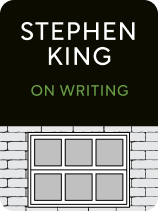

This article is an excerpt from the Shortform summary of "On Writing" by Stephen King. Shortform has the world's best summaries of books you should be reading.
Like this article? Sign up for a free trial here .
Is there such a thing as natural writing talent? Can you become a better writer
Writing talent is, of course, incredibly helpful to have as a writer. But all types of writers can become better. And of course, you may enjoy the act of writing better if you also possess some degree of writing talent.
Read more about natural writing talent and how to improve your writing skills.
The Gradation of Writers and Writing Talent
Writers fit into a pyramid of quality.
At the bottom are bad writers. They might violate basic elements of style, such as using passive voice and adverbs. They might write implausible plots and shallow characters. Often, bad writers don’t know that they’re bad.
Next level up are competent writers, a slightly smaller but still large group. These people seem more conscious of what makes for bad writing.
Next level up are good writers, a much smaller group. They understand the fundamentals of writing and have a good command of the tools in their toolkit. King places himself into this group.
Finally, at the top level are great writers—the Shakespeares, the Steinbecks. These people are often gifted in ways we mortal writers can’t understand; they often can’t understand it themselves.
According to King, it’s impossible to make a bad writer competent, and it’s impossible to make a good writer great. But it is possible for a competent writer with writing talent to become good, through hard work and good guidance.
Talent and Hard Work
One sign of natural writing talent is enjoying the hard work. What seems like labor to other people is pleasure for you.
Stephen King reads 80 books a year, despite professing to be a slow reader. He doesn’t read to learn, he reads because he likes reading. And when he writes (2,000 words a day), it typically feels like playtime to him—it’s the rest of life, with the errands and the bills and the “relaxing” that feels like work to him. He categorically denies ever having written for money—it’s all out of pure joy.
For King, writing is fun on a few levels. On a mechanical level, he relishes the feeling of arranging words in just the right order. On a higher level, he’s inspired by the idea of enriching the lives of his readers and how writing enriches his own life. This is part of having a natural writing talent.
If you don’t feel the joy, you might not have the talent. King tells a story about his son getting inspired to play the saxophone. King gave him a saxophone and a teacher, and waited to see what would happen. His son became technically competent, but he didn’t show the exuberant spontaneity of talent. He diligently met his prescribed half-hour practice sessions, but never went beyond them. He mastered the scales, but he didn’t riff the way people who love music do. Ultimately they all agreed he should stop and find somewhere else he might be more talented.
If you don’t enjoy reading and writing, then you won’t become a good writer. But “if you can do it for joy, you can do it forever.”

———End of Preview———
Like what you just read? Read the rest of the world's best summary of Stephen King's "On Writing" at Shortform .
Here's what you'll find in our full On Writing summary :
- Stephen King's personal writing habits that led to superstar books like Misery and It
- How to make a story and characters feel real
- Why you should never use adverbs






